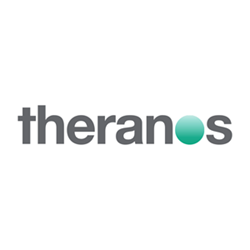Theranos Wins 510(k) Clearance For Finger Stick Herpes Test
By Jof Enriquez,
Follow me on Twitter @jofenriq

Diagnostics startup Theranos has won U.S. Food and Drug Administration (FDA) 510(k) clearance for its herpes simplex 1 virus IgG finger stick test and the associated software that analyzes the test. For Theranos, the approval helps ease skepticism surrounding its secretive but potentially groundbreaking blood tests, which require just a drop of blood to analyze multiple conditions. In contrast, many traditional, validated lab tests require a vial of blood.
Theranos announced in a news release that the FDA clearance "includes the use of Theranos’ Nanotainer Tubes for tests run by this method, which allow samples to be collected from just a few drops of blood from a virtually painless prick of a patient’s finger. The Theranos System, including Theranos’ device, analytical software, and Nanotainer Tubes, has been fully validated and cleared for use with this test method."
Palo Alto, Calif.-based Theranos claims to be the first laboratory to voluntarily submit its laboratory developed tests (LDTs) to FDA review, even though the agency plans to expand its oversight on those tests. The company says it provided FDA with data from 818 subjects in its HSV-1 studies, which demonstrated that its finger stick test using drops of blood is as effective as a traditional venous blood draw across 69 Theranos devices. Theranos also claims the HSV-1 study results were 100 percent in agreement with corresponding CDC tests.
“We are proud to have received our first FDA clearance,” said Elizabeth Holmes, founder and CEO of Theranos, in the release. “In order to realize our vision of early detection, lab tests must meet the highest quality standards — standards that are comprehensively set by FDA. FDA review is a uniquely rigorous process we undertook voluntarily because we remain deeply committed to ensuring that our systems and all of our laboratory developed tests are of the highest quality, and that patients and their physicians have access to the most accurate information about their health. We look forward to continuing our strong working relationship with the Agency on further applications.”
Holmes, who dropped out of Stanford to found Theranos in 2003, developed a device that can run 30 tests on a single drop of blood. As described in Inc., "patients prick their fingers and place a small drop of blood on a disposable cartridge, which is then inserted into a reader that analyzes the medicine within the bloodstream. The device then sends the data wirelessly to a secure database, which makes it available online to the patients' physicians."
Theranos has forged a partnership with pharmacy chain Walgreens to make the test directly available to more people. The company plans to open more testing centers across the United States via similar partnerships with hospitals and wellness centers.
The convenience, speed, and affordability of Theranos' purported cutting-edge lab tests could upend traditional diagnostics. However, the secretive nature of how the technology works has drawn criticism from larger lab operators and some scientists. Unlike traditional companies, Theranos has not made most information about its diagnostic technology publicly available in peer-reviewed scientific journals, citing the need to protect its proprietary assets. Instead, the company chose to undergo FDA review to help validate its claims.
In an interview with Bloomberg, Holmes described other lab companies’ criticism that Theranos has not published peer-reviewed data for scrutiny as a “red herring.” “They haven’t filed any of their lab tests with the FDA, and we’re trying to create a model with the FDA being the gold standard,” she told the news outlet.
Groundbreaking, single-drop blood tests are not exclusive to Theranos. For instance, researchers at the Howard Hughes Medical Institute (HHMI), Brigham and Women’s Hospital, and Harvard University recently developed an assay that uses a single drop of blood to identify all viruses known to infect humans.
